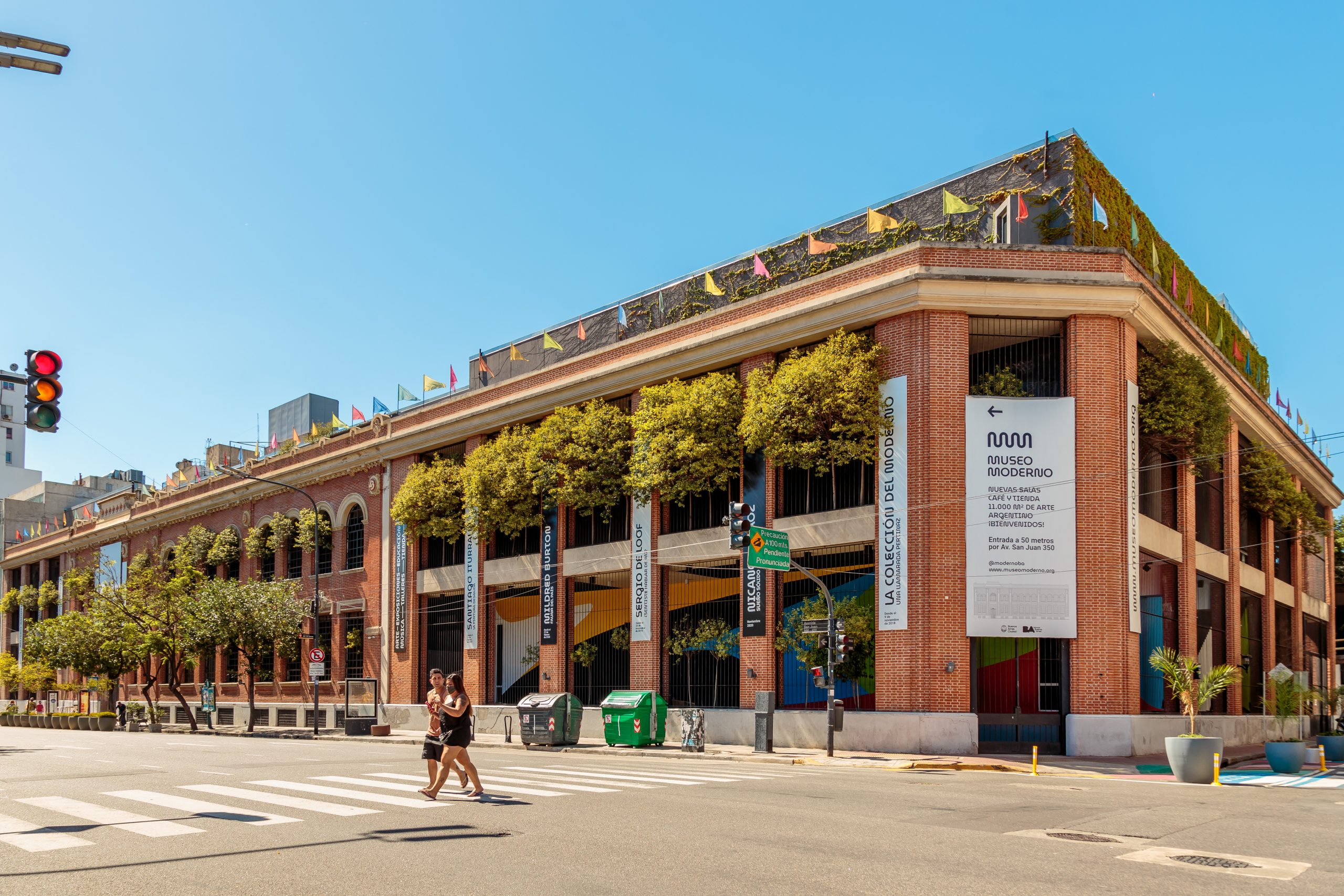55th CIMAM ANNUAL CONFERENCE IN BUENOS AIRES
9–11 November 2023

What is a co-creative museum? How can a museum activate and strengthen mutuality among its many component communities? When is it legitimate to speak about the collective creation of programmes, languages and tasks in an institutional context? Is the social a new museum mandate? What is the museum’s educational role in the production of knowledge and in the pedagogical and dialogical process? How can the construction and care of patrimony and heritage find a correlation in the relationships the museum fosters with its diverse communities? How can the museum engage with the social processes affecting our immediate communities? ‘Co-creation’ is a term largely appropriated by the corporate sector, yet the participation in the reciprocal making of meaning is a fundamental task of the contemporary museum.
For the first time in CIMAM’s history, the Conference will focus on the social role of the art museum. This function lies at the natural heart of museum practices in Latin America, where many museums vigorously take up the mantle of responding to lesser developed economic contexts in which social disparity, inequality and discrimination are the order of the day. Cultural institutions in this region are highly experienced in collaborating with artists to position the arts as a vehicle for the development of the imagination, the expansion of concepts and forms of education, the production of communal and individual knowledge, and resistance to authoritarianism; in short, as a path of effective micropolitics towards concrete social transformation, community-building and the promotion of social justice.
The need to empower museums in a context of exponential vulnerability has today extended to the whole world: institutions can feel vulnerable over non-existent codes of governance and ethics, and their lack of clarity or effective application, or over insufficient financial resources that are either too weak to support operations in less developed contexts or too scarce to face the competition of the art market in the more economically advanced contexts. Museums that have been able to function and prosper in unfavourable conditions have a great deal to offer and a great deal to say. Furthermore, inequity in human and natural rights is a trait that has become widely visible during the Covid19 pandemic: gender, economic and religious forms of discrimination, racism and hatred are on the rise, challenging all parameters of stability. The current levels of distress in most societies demand that museums privileged enough to work with living artists are rising to the occasion to develop fast, flexible and effective responses and methodologies that can bring about social and educational micropolitical change by grounding the force of their actions in the diversity and intrinsic freedom of thought, expression and creativity that is at the heart of artistic practice.
This Conference will, transversally, address ethics, values and methods as three core concerns of museum practices today. We are interested in rethinking how we do what we do and in opening up dialogue. The Conference is hosted by Argentina’s dynamic artistic community against a backdrop of economic adversity, a community that has so much to say about how to do more with less and tirelessly turns to the arts as a vehicle for touching and transforming lives.
How Can Museums Embrace their Social Responsibility? A Question from the Americas
How can museums become effective sites for playing out, debating and tackling the issues raised by societies? How can museums be affirmed as brave spaces for freedom of expression, the development of honest inquiry and the expansion of creative imaginations as they occupy their roles as producers of knowledge in dialogue with artists and civil societies? On this first day of the Conference, we look forward to setting forth holistic conceptions around how the museum can effectively make communities’ concerns its own in order to effectively respond and accompany their searches by shouldering social, cultural and educational – and decolonial! – responsibilities.
Guest Speakers
The Role of Museums in Communities, Education, and Accessibility
The museum can be an active agent in understanding art partly as a vehicle for the construction of knowledge. What is the role of the arts and artists in education as a whole, and what is the role of education as endorsed by the museum? How can the museum become a catalyst for new notions of education? How can museums foster co-creative relationships with and among artists and the local communities of situated contexts? Over the course of Day 2, we access the experiences and philosophies of specialists in education, accessibility and mental health as they weave the arts into their own practices of education, care and healing.
Guest Speakers
How Can Museums Collect, Preserve and Protect Cultural Heritage While Creating New Communities?
Day 3 is intended as an organic continuation of the debates and discussions begun during the second day of the Conference. Museums have a responsibility to preserve but also to honour situated histories, materials and archives that embody past heritages and steer us towards different futures. Museums are learning not only to preserve, but to become and remain respectful to the premises and values of the communities which such materials belong to. Can we implement different methodologies to question canonical and normative processes and so disrupt colonial legacies? Can we escape the logic of capitalism in our collections? Can we challenge our acquisition criteria and our conservation policies to accommodate the well-being of our planet? Can restitution be seen as a form of necessary healing and an opportunity to initiate a different dialogue with the past? What are the future mechanisms to implement the museum’s response in the event of wars or emergencies? Naming problems and proposing different approaches and methods has a generative effect by enabling us to collectively reflect on a museum capable of learning and transmitting how heritage is always related to an idea of the social situated not only in the past but in the future.
Guest Speakers